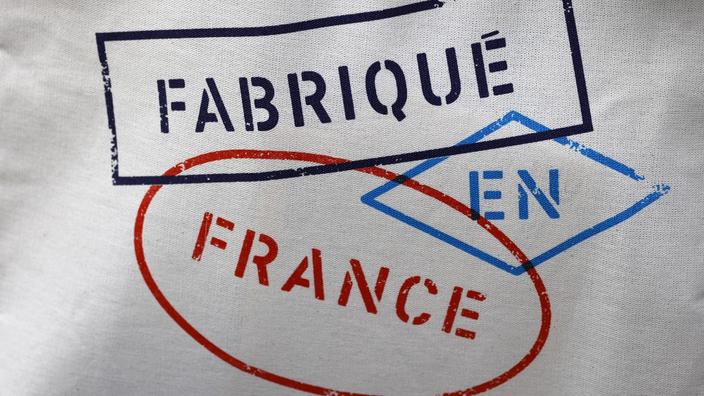Whether it is a “
Made in France
”, “
Guaranteed French Origin
” or a little rooster, many products now showcase their French manufacture.
The Presidency of the Republic has also put forward this brand of "
made in France
", during an event, a few weeks ago, at the Elysee.
The tricolor is proving to be a very powerful selling point with consumers, so much so that some companies allow themselves to be misused.
To discover
Ice creams, breads, aperitif cakes ... more than 7,000 products recalled due to carcinogenic substances
Read also: Made in France: meeting with a manufacturer
In charge of the case and anxious to measure the extent of these false indications, the General Directorate for Competition, Consumption and Fraud
Control
(
DGCCRF) conducted the first investigation in the matter between 2019 and 2020, in ten regions and "
from 686 establishments, including online sales sites
".
Main teaching, irregularities were noted in "
15% of professionals visited
" during this survey.
A "
low rate of anomalies
", notes the DGCCRF, but which covers "
various deceptive commercial practices
".
"
Half of the anomalies observed directly related to" Made in France ", the other half concerned breaches or infringements of other regulations: pre-contractual information, use of the French language, information on prices ...",
explains the DGCCRF to
Le Figaro.
However, it is impossible to describe an upward or downward trend in recent months, this survey being the first of its kind.
Read also: "Made in France": what products will visitors discover at the Élysée this weekend?
The service attached to Bercy then goes into the details of the most common fraud practices. Some professionals affix an indication of French origin on products of which only a tiny part has been produced in France. The DGCCRF thus takes the example of bags from Tunisia to which a strap has been added in France, presented as objects made in France
.
Likewise, certain products stamped "
100% Made in France
" are effectively processed in France but made from imported raw materials. The DGCCRF also regrets that certain statements ensuring a French origin are difficult to verify for consumers.
The real countries of origin of these products "
are very varied",
notes the DGCCRF, which underlines a national specialization according to the product lines
.
"By
way of illustration, let us cite Tunisia (Leather Goods), Madagascar (Watchmaking), Bangladesh and Portugal (Textile), England (Cosmetics), Poland, Italy and China (Masks), Denmark (Fir trees) ”
, list the experts.
Fraud on masks and hydroalcoholic gel
Masks and gel are also concerned by the irregularities: "the
investigation revealed several frauds
"
Made in France
"
on masks and gel, in particular on masks,
points out the DGCCRF.
These products have indeed been in great demand by consumers to fight COVID-19 ”
.
A vast array of masks stamped
“Made in France
”, but in fact made in China, was also dismantled in the spring by the DGCCRF.
"
Nearly 4 million masks were seized, which suggests a fraud representing several million euros",
declared Alain Griset in April.
To read also: Relocations: companies try the "made in France"
"The misleading use of marks, signs (...) or any indication of a nature to suggest an origin different from the real origin, falls under the same offense",
recalls the DGCCRF
.
Deceptive marketing practices punishable by two years in prison and a fine of up to 10% of the turnover of the offending company. Counterfeiters are warned.

